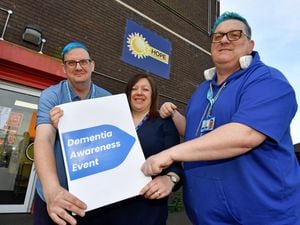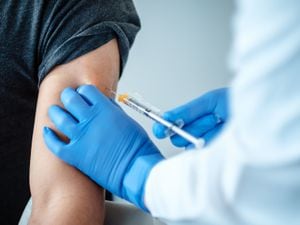Seven in 10 NHS trusts failing to meet patient cancer targets
Around seven in 10 NHS trusts on average are failing to hit the target for seeing patients urgently for suspected cancer, new analysis shows.

Data examined shows that the number of hospitals failing to hit the national target for cancer referrals is the highest it has been for at least three years.
In England, the maximum waiting time for a hospital appointment for suspected cancer is two weeks from the day the hospital receives a referral letter from a GP.
Some 93 per cent of patients should be seen within this time-frame, according to the NHS in England. However, the new analysis, using data from August 2019 to August 2022, shows this target is routinely not being met.
Latest figures show that for Wolverhampton and Walsall, 79.2 per cent of cases met the time-frame – with Staffordshire coming in at 52.4 per cent and Sandwell coming in at 96.2 per cent. Data for Dudley was unavailable.
At the Royal Wolverhampton NHS Trust, which runs New Cross Hospital, 1,910 patients were seen with 1,513 within the time limit. For the Walsall NHS Healthcare Trust, which runs Walsall Manor Hospital, it was 903 patients with 715 in the time limit.
Sandwell and West Birmingham NHS Trust, which runs Sandwell General Hospital in West Bromwich and Birmingham’s City Hospital, saw 1,987 patients and 1,912 in the time-frame.
Meanwhile the University Hospitals of North Midlands NHS Trust, which runs Stafford’s County Hospital and Royal Stoke University Hospital, saw 3,951 patients with 2,071 within the time limit. Diane Wake, CEO at The Dudley Group NHS Foundation Trust, and cancer lead for the NHS in the Black Country, said: “The Covid-19 pandemic resulted in far fewer people being diagnosed and starting treatment for cancer.
"Thankfully, we are now seeing many more people coming forward with concerns and this has increased the number of people requiring tests to support rapid diagnosis. We have faced some challenges in responding to the increase in need, but I am pleased to say that we have now recruited into key roles in our pathology service and, with the increased diagnostic capacity, we hope to see us hitting the target very soon.
"As cancer referrals rise, we need that upward trend to continue, so if anyone has any symptoms they are worried could be cancer, their GP will want to see them urgently – do not delay in coming forward.”
The overall data includes 117 trusts in England for whom there is complete data for the last three years. The 12-month rolling average for the number of trusts not hitting the target currently stands at 84 out of 117 – the highest number over this period. This is nearly three quarters, 72 per cent, of the 117 trusts, and includes three that have never reached the target during the three years.
They are University Hospitals Birmingham NHS Foundation Trust, Newcastle upon Tyne Hospitals NHS Foundation Trust, and North Middlesex University Hospital NHS Trust. All have been contacted for comment.
Naser Turabi, director of evidence and implementation at Cancer Research UK, said: “Any cancer waiting times target that is missed is unacceptable. However, this target should be a minimum standard. The fact that it is now not being met just goes to show how strained our health service has become.”
An NHS spokesperson said: “The NHS is investing billions to expand diagnostic treatment capacity to meet extra demand, and has written to trusts with the longest backlogs asking them to urgently set out plans to reduce cancer waits.”





